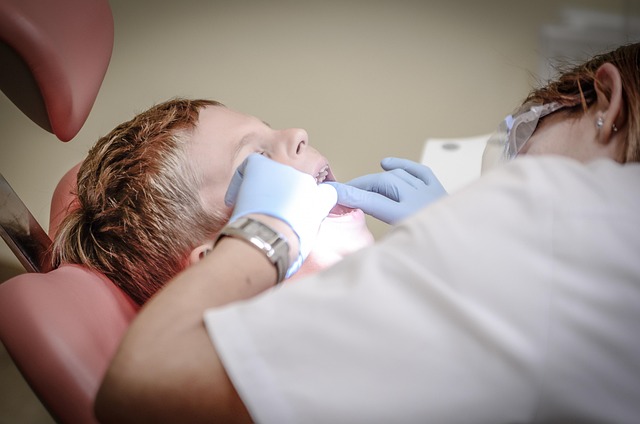2025 Dental Implants Guide for Canadians
Planning dental implants in 2025? This comprehensive guide helps Canadians compare receiving care in Canada versus abroad. It outlines typical costs and financing options, step-by-step treatment timelines and alternative procedures, clinic accreditation and safety standards, travel logistics, aftercare plans and warranty considerations, and practical tips for choosing accredited clinics to protect outcomes and budgets.

Dental implants represent a significant investment in your oral health and overall quality of life. As we enter 2025, Canadian patients have more options than ever before, both domestically and internationally. Understanding the complete landscape of dental implant treatment helps ensure you make the best decision for your specific situation and budget.
Costs in Canada vs Abroad
The cost difference between Canadian and international dental implant treatment remains substantial in 2025. In Canada, a single dental implant typically ranges from $3,000 to $6,000, including the implant, abutment, and crown. Full mouth reconstruction can cost between $20,000 and $50,000 depending on complexity and location.
International destinations like Mexico, Costa Rica, and Eastern European countries offer significantly lower prices, often 50-70% less than Canadian rates. However, these savings must be weighed against additional travel costs, accommodation, and potential complications that may require follow-up care back home.
| Location | Single Implant Cost | Full Mouth Cost | Additional Considerations |
|---|---|---|---|
| Canada (Major Cities) | $4,000-$6,000 | $30,000-$50,000 | Local follow-up care included |
| Canada (Smaller Cities) | $3,000-$4,500 | $20,000-$35,000 | May require travel for specialists |
| Mexico | $1,200-$2,500 | $8,000-$15,000 | Travel and accommodation costs |
| Costa Rica | $1,500-$3,000 | $10,000-$18,000 | Language barriers possible |
| Eastern Europe | $800-$2,000 | $6,000-$12,000 | Extended travel time required |
Prices, rates, or cost estimates mentioned in this article are based on the latest available information but may change over time. Independent research is advised before making financial decisions.
Treatment Timeline and Options
The dental implant process typically spans 3-6 months, though complex cases may require up to a year. The timeline includes initial consultation, implant placement surgery, healing period (osseointegration), and final crown placement. Immediate load implants, where a temporary crown is placed the same day, are available for suitable candidates but require careful case selection.
Traditional implants remain the most predictable option, while mini implants offer a less invasive alternative for specific situations. All-on-4 and All-on-6 systems provide full arch replacement with fewer implants, reducing treatment time and cost while maintaining excellent outcomes for many patients.
Quality Safety and Accreditation
Canadian dental implant treatment is regulated by provincial dental colleges, ensuring practitioners meet strict educational and ongoing competency requirements. Look for specialists certified by the Royal College of Dentists of Canada or members of the Canadian Association of Oral and Maxillofacial Surgeons.
Implant materials should be FDA or Health Canada approved, with titanium and zirconia being the primary options. Reputable manufacturers like Nobel Biocare, Straumann, and Zimmer Biomet offer comprehensive warranty programs and extensive research backing their products.
Travel Logistics and Aftercare
Dental tourism requires careful planning beyond just comparing prices. Consider the total time away from work, travel restrictions, and the need for multiple trips. Most international treatments require at least two visits: initial surgery and final restoration placement.
Establish a local dentist relationship before traveling abroad for ongoing maintenance and emergency care. Complications, while rare, can occur months after initial treatment and may require immediate professional attention that international providers cannot provide remotely.
Financing Warranties and Insurance
Most Canadian dental insurance plans provide limited coverage for implants, typically 50% up to annual maximums of $1,500-$3,000. Some extended health plans offer higher coverage levels, making domestic treatment more affordable.
Financing options include dental-specific credit programs, personal loans, and payment plans offered by many clinics. Health Spending Accounts and Flexible Spending Accounts can also help manage costs using pre-tax dollars.
Warranty coverage varies significantly between providers. Canadian clinics often provide comprehensive warranties covering both the implant and restoration, while international providers may offer limited coverage that becomes difficult to access from Canada.
Dental implants represent a long-term investment in your oral health and quality of life. While cost considerations are important, factors like practitioner expertise, material quality, and accessible follow-up care should weigh heavily in your decision-making process. Whether choosing domestic or international treatment, thorough research and realistic expectations will help ensure the best possible outcome for your specific situation.
This article is for informational purposes only and should not be considered medical advice. Please consult a qualified healthcare professional for personalized guidance and treatment.




